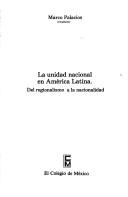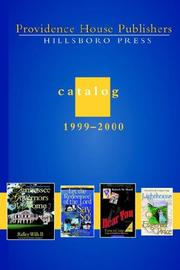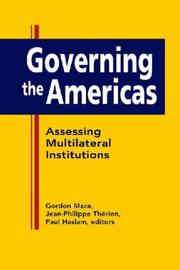| Listing 1 - 8 of 8 |
Sort by
|
Book
ISBN: 0813039533 0813040191 9780813040196 9780813034720 9780813037639 0813037638 0813034728 Year: 2010 Publisher: Gainesville University Press of Florida
Abstract | Keywords | Export | Availability | Bookmark
 Loading...
Loading...Choose an application
- Reference Manager
- EndNote
- RefWorks (Direct export to RefWorks)
'From Douglass to Duvalier' examines the creative and critical ways U.S. African Americans and Haitians engaged the idealized tenets of Pan Americanism - mutual cooperation, egalitarianism, and nonintervention between nation-states - in order to strengthen Haiti's social, economic, and political growth and stability.
Pan-Americanism --- African Americans --- History. --- Relations with Haitians --- Haiti --- United States --- Race relations. --- Relations
Book
ISBN: 0252054008 0252048024 Year: 2023 Publisher: Urbana, Illinois : University of Illinois Press,
Abstract | Keywords | Export | Availability | Bookmark
 Loading...
Loading...Choose an application
- Reference Manager
- EndNote
- RefWorks (Direct export to RefWorks)
"Between 1941 and 1963, Aaron Copland made four government-sponsored tours of Latin America that drew extensive attention at home and abroad. Interviews with eyewitnesses, previously untapped Latin American press accounts, and Copland's diaries inform Carol A. Hess's in-depth examination of the composer's approach to cultural diplomacy. As Hess shows, Copland's tours facilitated an exchange of music and ideas with Latin American composers while capturing the tenor of United States diplomatic efforts at various points in history. In Latin America, Copland's introduced works by U.S. composers, including himself, through lectures, radio broadcasts, live performance, and conversations. Back at home, he used his celebrity to draw attention to regional composers he admired. Hess's focus on Latin America's reception of Copland provides a variety of outside perspectives on the composer and his mission. She also teases out the broader meanings behind reviews of Copland and examines his critics in the context of their backgrounds, training, aesthetics, and politics"--
Cultural diplomacy --- Music and diplomacy --- Pan-Americanism --- History --- Copland, Aaron, --- Travel

ISBN: 9681202236 6076287780 Year: 1983 Publisher: El Colegio de México
Abstract | Keywords | Export | Availability | Bookmark
 Loading...
Loading...Choose an application
- Reference Manager
- EndNote
- RefWorks (Direct export to RefWorks)
El regionalismo, en el contexto de la formación nacional de América Latina, reviste múltiples características que desbordan los enfoques simplistas del "desarrollo capitalista y dependiente". El análisis del regionalismo, la centralización política y la consolidación nacional de América Latina, es realizado con el máximo rigor por un grupo de especialistas de diversos países de nuestra América.
Nacionalismo --- Regionalismo --- Latin American federation. --- Regionalism --- Federation of Latin America --- Latin American integration --- Latin American union --- Federal government --- International organization --- Pan-Americanism --- Pan-Hispanism --- History of the Americas

ISBN: 0199920001 0199919992 0199345619 9780199920006 9780199345618 9780199919994 0199339899 Year: 2013 Publisher: New York
Abstract | Keywords | Export | Availability | Bookmark
 Loading...
Loading...Choose an application
- Reference Manager
- EndNote
- RefWorks (Direct export to RefWorks)
In this work, Carol A. Hess investigates the reception of Latin American art music in the US during the Pan American movement of the 1930s and 40s. Hess uncovers how and why attitudes towards Latin American music shifted so dramatically during the middle of the 20th century, and what this tells us about the ways in which the history of American music has been written.
Music --- Pan-Americanism. --- Inter-American cooperation --- Inter-American relations --- International cooperation --- Regionalism (International organization) --- Art music --- Art music, Western --- Classical music --- Musical compositions --- Musical works --- Serious music --- Western art music --- Western music (Western countries) --- History and criticism. --- Latin American influences.
Book
ISBN: 9780268202033 0268202036 9780268202002 0268202001 026820201X 9780268202019 Year: 2022 Publisher: Notre Dame, Indiana
Abstract | Keywords | Export | Availability | Bookmark
 Loading...
Loading...Choose an application
- Reference Manager
- EndNote
- RefWorks (Direct export to RefWorks)
"The Southern Cone and the Origins of Pan America, 1888-1933 offers new perspectives on the origins of the inter-American system and the history of international cooperation in the Americas. Mark J. Petersen chronicles the story of pan-Americanism, a form of regionalism launched by the United States in the 1880s and long associated with U.S. imperial pretensions in the Western hemisphere. The story begins and ends in the Río de la Plata, with Southern Cone actors and Southern Cone agendas at the fore. Incorporating multiple strands of pan-American history, Petersen draws inspiration from interdisciplinary analysis of recent regionalisms and weaves together research from archives in Argentina, Chile, the United States, and Uruguay. The result is a nuanced and comprehensive account of how Southern Cone policy makers used pan-American cooperation as a vehicle for various agendas--personal, national, regional, hemispheric, and global--transforming pan-Americanism from a tool of U.S. interests to a framework for multilateral cooperation that persists to this day. Petersen decenters the story of pan-Americanism and orients the conversation on pan-Americanism toward a more complete understanding of hemispheric cooperation. The book will appeal to students and scholars of inter-American relations, Latin American (especially Chile and Argentina) and U.S. history, Latin American studies, and international relations." --
Pan-Americanism. --- Panaméricanisme. --- 1800-1999 --- Latin America --- United States --- Southern Cone of South America --- Amérique latine --- Latin America. --- South America --- United States. --- History --- Relations --- History. --- Cultural policy --- Histoire


ISBN: 1588269736 1588265331 9781588269737 9781588265333 Year: 2022 Publisher: Boulder
Abstract | Keywords | Export | Availability | Bookmark
 Loading...
Loading...Choose an application
- Reference Manager
- EndNote
- RefWorks (Direct export to RefWorks)
Governing the Americas presents the first systematic assessment of the functioning of hemispheric institutions since the introduction of the Summit of the Americas process in 1994. The authors evaluate the effectiveness of inter-American institutions with regard to core issues of democratic governance, security, trade, and economic development. They consider, as well, the impact of the profusion of multilateral institutions on the coordination and efficiency of hemispheric cooperation. Exploring why some multilateral efforts have worked while others have been more problematic, they also offer a reasoned assessment of the future of inter-American cooperation.
International agencies --- Pan-Americanism. --- Inter-American conferences. --- International American conferences --- Pan American conferences --- Pan-Americanism --- Inter-American cooperation --- Inter-American relations --- International cooperation --- Regionalism (International organization) --- Associations, International --- IGOs (Intergovernmental organizations) --- Institutions, International --- Inter-governmental organizations --- Intergovernmental organizations --- International administration --- International associations --- International governmental organizations --- International institutions --- International organizations --- International unions --- Organizations, International --- Specialized agencies of the United Nations --- Interorganizational relations --- Non-state actors (International relations) --- International organization
Book
ISBN: 0813936659 0813936675 9780813936673 9780813936659 9780813936666 0813936667 Year: 2014 Publisher: Charlottesville
Abstract | Keywords | Export | Availability | Bookmark
 Loading...
Loading...Choose an application
- Reference Manager
- EndNote
- RefWorks (Direct export to RefWorks)
Park invests in an interdisciplinary approach, which he frames as a politically resistant intellectual practice, using it not only to examine the historical phenomenon of Pan Americanism but to explore the implications for current transnational scholarship.
Literature and globalization. --- Transnationalism in literature. --- Pan-Americanism. --- Literature --- Inter-American cooperation --- Inter-American relations --- International cooperation --- Regionalism (International organization) --- Belles-lettres --- Western literature (Western countries) --- World literature --- Philology --- Authors --- Authorship --- Globalization and literature --- Globalization --- History and criticism. --- America --- In literature. --- Literature, Modern
Periodical
ISSN: 07190948 07182910 Year: 1996 Publisher: Iquique: Instituto de Estudios Internacionales (INTE), Universidad Arturo Prat
Abstract | Keywords | Export | Availability | Bookmark
 Loading...
Loading...Choose an application
- Reference Manager
- EndNote
- RefWorks (Direct export to RefWorks)
Latin American federation --- Latin American federation. --- International economic integration. --- Diplomatic relations. --- Latin America --- Latin America. --- Economic integration --- Foreign relations --- Relations --- Common markets --- Economic integration, International --- Economic union --- Integration, International economic --- Markets, Common --- Union, Economic --- International economic relations --- Federation of Latin America --- Latin American integration --- Latin American union --- Federal government --- International organization --- Politics and government --- Pan-Americanism --- Pan-Hispanism --- Asociación Latinoamericana de Libre Comercio countries --- Neotropical region --- Neotropics --- New World tropics --- Spanish America
| Listing 1 - 8 of 8 |
Sort by
|

 Search
Search Feedback
Feedback About UniCat
About UniCat  Help
Help News
News